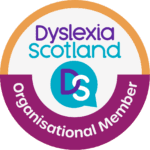

Making dyslexia work
Ross Linnett couldn’t find the tech solutions that helped him, so he made his own
When I was younger, I always suspected there was something different about the way my brain was working and learning. At age 4, I was already written off into what was known at the time as a ‘special reading class’.
I was very confident and happy in school, but the thought of reading in front of the class used to scare the life out of me. It was only after university that I was finally officially identified with dyslexia. I was giving a presentation and writing some notes down on paper when a colleague commented that I was displaying all the signs. I finally did the assessment and – lo and behold – they were right!
I was very confident and happy in school, but the thought of reading in front of the class used to scare the life out of me. It was only after university that I was finally officially identified with dyslexia. I was giving a presentation and writing some notes down on paper when a colleague commented that I was displaying all the signs. I finally did the assessment and – lo and behold – they were right!
Shortly after my employer provided me with personal assistive technology. But, the problem was, there was a limit to what anyone could do to help me because the technology just didn’t exist. Sure, there was software that I could use on one dedicated computer in the office. But there were no portable or cloud-based solutions that could make online content accessible to me from anywhere, on any device.
That’s what led me to create my own assistive technology – I didn’t want anyone else to find themselves limited online. Without dyslexia, I truly don’t think I would have set up my own company. There are so many positives about having dyslexia. People with dyslexia tend to be very creative; we’ve had a lifetime of coming up with solutions, problem solving and being adaptable.
I’ve had to find ways to work around difficulties I’ve faced and it means I have a great imagination for new angles or fresh perspectives. These ‘dyslexic traits’ have been great assets to me in business and I think they’ve actually served me well. Having a CEO who comes with a different way of thinking can often energise people to also think more creatively and that’s what I’ve experienced from my team.
Obviously, there are struggles associated with dyslexia too. I find reading online text particularly difficult. I often need to have bulks of text read aloud, or adjust the colour of websites to suit my needs better. Thankfully there are tools for me to use to overcome most of those barriers now. I have a limited attention span, also a common dyslexic trait, so at Recite Me we try to keep meeting lengths down as much as possible – which comes with the added advantage of making our meetings much more efficient and focused. Did you know that Winston Churchill was dyslexic? He would often refuse to have a meeting longer than 20 minutes, and if he can run an entire war operation this way, I’m confident that our business and any other company can also manage.
Recite Me are Organisational Members of Dyslexia Scotland. Find out if your company is eligible.



